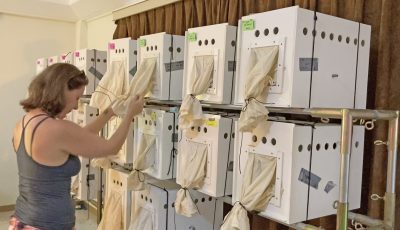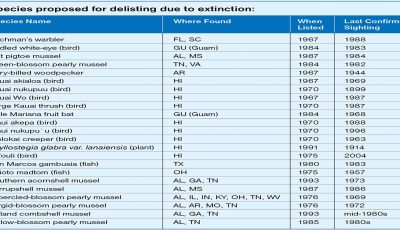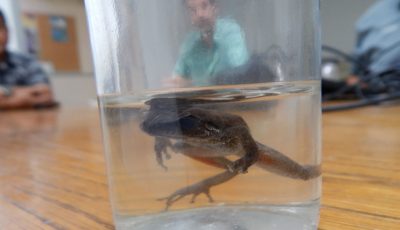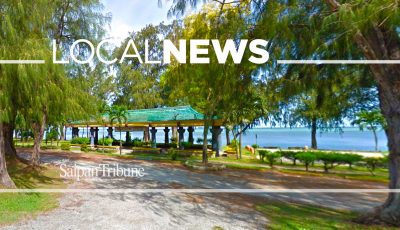Palacios balks at feds’ endangered species listing
The chairman of the Senate Committee on Foreign and Federal Relations believes the federal government’s recent decision to list 23 species under the Endangered Species Act is bad policy, saying it ignores science on the ground and will impact the limited opportunities for land development on Rota, Tinian, and Saipan.
Sen. Arnold Palacios (R-Saipan) said he is disappointed with the U.S. Fish and Wildlife Service, which proposes and finalizes the ESA listing.
“There is a cause of concern when our own national concerns are dictating policy that—to some local scientists—are based on sketchy and even bad science,” Palacios said in an interview.
The CNMI Department of Land and Natural Resources has disagreed with the listing of several species under the Endangered Species Act—particularly plant species on Rota—asserting that “no evidence” has shown that they warrant listing.
Scientists under the local Division of Fish and Wildlife do not believe the U.S. Fish and Wildlife Service has met the burden of proof to warrant the listing.
Palacios, a former DLNR secretary and has worked under DFW, said the listing will have a “lasting impact” on the community, especially on Rota, where many of these plant species are found. While the Service has not yet designated “critical habitat” for these species, this is expected.
Palacios explained that if a local CIP project were to use federal funds, they would have to do an environmental impact assessment. If the project occurs where the plant species are found, federal law enforces the “setting aside of public lands for species.”
But Palacios notes that there is no federal land on Rota to be set aside, just public lands.
He called the mitigation process a “back-door policy to set aside land in perpetuity.”
“There seems to be a new paradigm in the U.S. Fish and Wildlife Service [in] not really caring what the community” thoughts are—“these are people who live with these species, they are the ones on the ground,” he said. “And they also have to have a buy-in.”
When U.S. Fish and Wildlife first proposed the listing and held public hearings on Saipan, community members, scientists, and local officials balked at the proposal.
Kristi Young, USFW deputy field supervisor, told Saipan Tribune in February that once a species is proposed for listing, it “doesn’t automatically guarantee” listing. Another official assured they would seek the “best available scientific data” and “rely on the locals” like farmers and scientists for their input.
But DLNR and DFW said in February that their surveys found “no evidence” for the listing of plant species like the Dendrobium guamense, Bulbophyllum guamense, Tuberolabium guamense, Nervilia jacksoniae, Maesa walkeri, and Solanum guamense.
Palacios says the Service has made the public hearings and meetings “a formality.”
“An administrative formality,” he added. “And this was always an intention on their part to do.”



























